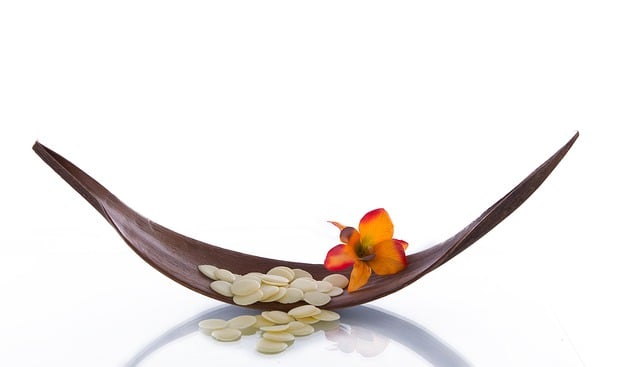Mindfulness, a key aspect of emotional wellness coaching, teaches individuals to accept the present moment without judgment. Through breathing exercises, meditation, and mindful activities, coaches help clients reduce stress, gain clarity, and regulate emotions. By integrating these simple yet effective practices into daily life, people can achieve better well-being, emotional balance, and inner peace. Emotional wellness coaching leverages these techniques to empower individuals to navigate the challenges of modern life with resilience and a deeper understanding of themselves.
Discover the transformative power of mindfulness techniques for cultivating inner peace. In today’s fast-paced world, emotional wellness coaching becomes an indispensable tool for navigating stress and anxiety. This comprehensive guide explores key practices such as breathing techniques, meditation, and mindful activities to help you find calm and balance. By integrating these strategies into your daily routine, you can enhance emotional resilience and achieve lasting inner peace.
- Understanding Mindfulness and Its Role in Emotional Wellness Coaching
- Breathing Techniques for Calming the Mind and Body
- The Power of Meditation: Cultivating Inner Silence
- Incorporating Mindful Activities into Daily Routines for Sustained Peace
Understanding Mindfulness and Its Role in Emotional Wellness Coaching

Mindfulness, a practice that encourages individuals to focus on the present moment without judgment, has become an integral part of emotional wellness coaching. It empowers people to observe their thoughts and emotions as they are, fostering a deeper connection with their inner selves. Through mindfulness techniques, coaches guide clients towards developing self-awareness, enhancing their ability to manage stress and regulate their emotional responses.
In the context of emotional wellness coaching, mindfulness serves as a powerful tool for navigating life’s challenges. By cultivating present-moment awareness, individuals can gain clarity, reduce anxiety, and improve overall well-being. Emotional wellness coaches facilitate this process by teaching clients simple yet effective mindfulness practices that they can integrate into their daily routines, ultimately leading to more balanced and fulfilling lives.
Breathing Techniques for Calming the Mind and Body

Breathing is a powerful tool for calming both the mind and body, an essential technique often employed by emotional wellness coaches. Simple yet profound, deep and mindful breathing can quickly center your senses and reduce stress levels. By focusing on inhalation and exhalation, you create a moment of pause, allowing your thoughts to settle and your body to relax. This simple act can help break the cycle of anxious or racing thoughts that often contribute to feelings of restlessness and inner turmoil.
Imagine inhaling peace and exhaling tension. With each breath, visualize a soothing sensation spreading through your body, releasing any held stress or tension. This mindful breathing practice is accessible anytime, anywhere—whether you’re sitting at your desk, walking in nature, or lying in bed. Incorporating these techniques into your daily routine can foster a greater sense of emotional balance and overall inner peace.
The Power of Meditation: Cultivating Inner Silence

In today’s fast-paced world, finding inner peace can feel like navigating a labyrinthine maze. This is where meditation steps in as a powerful tool for emotional wellness coaching. By cultivating inner silence, individuals can harness a sense of calm and clarity that transcends the chaos of daily life. The practice involves training the mind to focus on the present moment, thereby reducing the mental clutter and stress that often accompany our bustling lifestyles.
Regular meditation sessions enable individuals to develop a deeper connection with their thoughts and emotions. This introspective journey helps in understanding and managing feelings more effectively, leading to improved emotional resilience. For those pursuing emotional wellness coaching, meditation serves as a game-changer, offering a quiet space for reflection and self-discovery, ultimately fostering a sense of inner peace that can be carried into every aspect of life.
Incorporating Mindful Activities into Daily Routines for Sustained Peace

Incorporating mindful activities into daily routines is a powerful strategy for cultivating and sustaining inner peace, a key aspect often emphasized by emotional wellness coaches. Start with simple practices like mindful breathing exercises during morning routines or before bed. Take a moment to focus on your breath, noticing its rhythm and the sensations it evokes, allowing you to anchor yourself in the present. Similarly, integrating mindfulness during mealtimes—slowing down to appreciate the textures, flavors, and aromas of your food—can transform eating into a more conscious experience, enhancing your connection with yourself and your body’s needs.
Regularly dedicating time for mindfulness practices, such as meditation or nature walks, ensures that inner peace becomes an integral part of your life. Consistency is key; even brief daily moments of mindfulness can accumulate over time, leading to significant improvements in emotional wellness. By weaving these practices into your routine, you create a sense of calm and balance, enabling better stress management and a deeper understanding of your emotions.
Mindfulness is a powerful tool for achieving emotional wellness, as evidenced by techniques like breathing exercises and meditation. By integrating these practices into our daily routines, we can cultivate inner peace and enhance our overall well-being. Emotional wellness coaching emphasizes the importance of understanding mindfulness’s role in managing stress and emotions. Through mindful activities, we can navigate life’s challenges with greater resilience, fostering a sense of calm and balance that resonates throughout our day-to-day lives.
